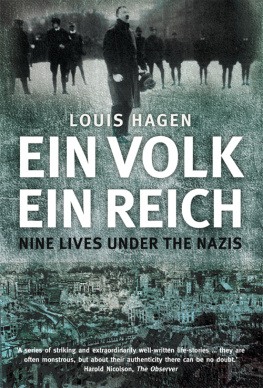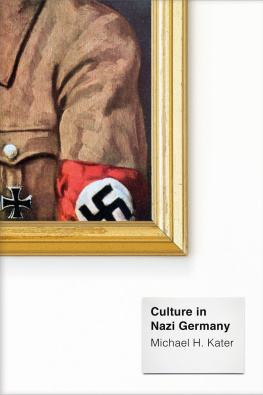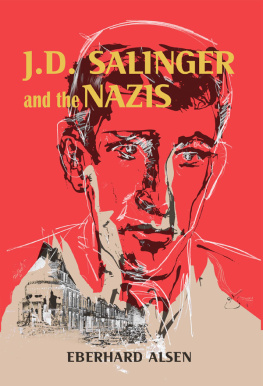The University of Chicago Press, Chicago 60637
1942 by Robert M. McBride & Company
Foreword 2013 by Robert D. Kaplan
All rights reserved.
Originally published in 1942
University of Chicago Press edition 2013
Printed in the United States of America
22 21 20 19 18 17 16 15 14 13 1 2 3 4 5
ISBN-13: 978-0-226-08633-0 (paper)
ISBN-13: 978-0-226-08647-7 (e-book)
DOI: 10.7208/chicago/9780226086477.001.0001
Library of Congress Cataloging-in-Publication Data
Waldeck, R. G. (Rosie Goldschmidt), 18981982.
Athene Palace : Hitlers New Order comes to Rumania / R. G. Waldeck ; with a new foreword by Robert D. Kaplan.
pages ; cm
ISBN 978-0-226-08633-0 (paperback : alkaline paper) ISBN 978-0-226-08647-7 (e-book) 1. RomaniaHistory19141944. 2. RomaniaPolitics and government19141944. 3. World War, 19391945Romania. I. Kaplan, Robert D., 1952 II. Title.
DR266.5.W35 2013
949.8'02dc23
2013011193
 This paper meets the requirements of ANSI/NISO Z39.48- 1992 (Permanence of Paper).
This paper meets the requirements of ANSI/NISO Z39.48- 1992 (Permanence of Paper).
ATHENE PALACE
HITLERS NEW ORDER COMES TO RUMANIA
R. G. WALDECK
With a new Foreword by
ROBERT D. KAPLAN
THE UNIVERSITY OF CHICAGO PRESS
Chicago and London
Praise for Athene Palace:
Athene Palace... is a textured miniature painting in words of Romanian manners, as seen from the lobby of the Athene Palace Hotel in Bucharest during the fascist revolution of 194041.Robert D. Kaplan, from A Readers Guide to the Balkans, New York Times, 1993
The most vivid report, long or short, I have ever seen on Rumania comes out this morning under the title of Athene Palace. It is brilliantly written and mercilessly barbed.... She writes throughout with a sharp and witty pen and with a knowledge of men and events by no means bounded by her seven months in Bucharest. An unusually skillful and readable book.Ralph Thompson, New York Times, 1942
The Countess Waldeck takes current history out of the funeral parlor and puts it into the Grand Hotel. Her book is as perversely engrossing, gossipy and gamy as a clandestine conversation in the lobby. Her Grand Hotel is the Athene Palace in Bucharest, the last cosmopolitan stage on which post-World-War Europe and the new-order Europe made a joint appearance. Theme of her book is the murder of a nationRumania.Time, February 16, 1942
For once, the publishers blurb does not exaggerate. This book really is brilliantly written and perversely intelligent.... The author was in Bucharest from June 1940 until January 1941, and from the vantage point of the Athene Palace, the grand hotel of Bucharest, she witnessed at close quarters the incredible happenings on the Rumanian political scene during those seven months. That scene and those happenings are described with great gusto, insight and a good dose of amusing malice.International Affairs Review Supplement, 1943
The writer... lived at the Hotel Athene-Palace from June, 1940, until January, 1941. Allowing for the fact that she was an American newspaper correspondent there is... excellent description and shrewd observation.... The writers account of the worst of the anti-Jewish excesses bears the mark of truth.Times Literary Supplement, April 10, 1943, Sir Alec Walter George Randall
BIOGRAPHICAL NOTE
Rosie Goldschmidt Waldeck (August 24, 1898August 8, 1982), born Rosa Goldschmidt in Mannheim, Germany, was the author of several works, including Prelude to the Past: The Autobiography of a Woman and Athene Palace. Waldeck was born Jewish but later became a Catholic in April of 1939 and gained American citizenship. Born into a banking family, she received a doctorate in sociology in 1920 from the University of Heidelberg where she studied under Alfred Weber. From the 1930s, she was based in the United States. From June 1940 to January 1941, she was a correspondent in Bucharest for American and Canadian publications. Living in the Athene Palace Hotel, she used her experiences during this time as the foundation for her novel, Athene Palace. The surname Waldeck comes from her third husband, the German count Armin Wolrad Widekind Bela Erich Maria Gottschalk Graf von Waldeck.
Contents

ACKNOWLEDGMENT
In a book which in any way deals with totalitarian politics and conditions, it is not polite for the author to acknowledge his sources. Therefore, I can only express my anonymous gratitude to the people in Bucharest and Transylvania whose conversations provided so important a part of my material.
I can, however, express my most sincere gratitude to those in America whose advice has proved of the greatest assistance in writing the book, first among them Allen Churchill, whose inexhaustible patience and warm encouragement have meant most to me and the book. Another who has been kind enough to give me assistance on many points is Mr. Jacob Rosenthal, secretary of the United Rumanian Jews of America, to whom I am also greatly indebted.
To anticipate any protests by purists, the author wishes to go on record as being aware that the name of Bucharests Grand Hotel is really spelled Athne Palace, and has been shorn of one e and of accents for no other reasons than simplicity and readability.
R. G. W.
FOREWORD
Robert D. Kaplan
In August 1984, I was in Bucharest reporting on perhaps the most repressive state in Communist Europe. Nicolae Ceauescus totalitarian regime had turned Romania into a grainy, black-and-white prison yard where the sense of paranoia was so overpowering, so intimidating, that it seemed the country had no past and no future. It wasnt true that the satellite states of the Soviet bloc were all of a kind. Traveling by rail from Budapest, Hungary, to Bucharest in those years, one saw that the quality of the houses and other construction immediately deteriorated and the lights went dim as the train car passed into Romania. The toilet paper in the restroom disappeared at the first stop when Romanian officials boarded the train to stamp passports and register typewritersso controlling was the regime. Romania in the 1980s, as I can attest from several trips there during that decade, was a European country where Stalinism lived on, unbowed.
In the Romania of 1984, the Second World War seemed not decades but centuries removed. After all, the Cold War, which in Eastern Europe had been a fact of life for four decades already, appeared likely to go on for many more. But so it was that on that, my fifth, visit to Romania since 1973, I met an American diplomat and area specialist, Ernest H. Latham Jr., who had made it his passion to collect the memoirs and other writings of visitors to Romania prior to the onslaught of the Communist ice age. Latham told me that I absolutely had to read Athene Palace by R. G. Waldeck, published in 1942, an account of the Nazi takeover of Romania as seen from the vantage point of one magazine correspondent staying at the Athene Palace Hotel in Bucharest from June 1940 to January 1941. It would open my eyes to another Romania, he said: one with a pre-Communist past and, therefore, with a post-Communist future.
At the time, when one thought of a book on World War II Romania, it was the British author Olivia Mannings 1960 work, Balkan Trilogy, which came to mind. But Latham counseled me that while Mannings treatment of Romania was on the scale of an epic, Waldecks Athene Palace was something even better: an obscure and sparkling little jewel that within the confines of one hotel and the streets around it provided an intimate study of Romanian manners.
Next page










 This paper meets the requirements of ANSI/NISO Z39.48- 1992 (Permanence of Paper).
This paper meets the requirements of ANSI/NISO Z39.48- 1992 (Permanence of Paper).